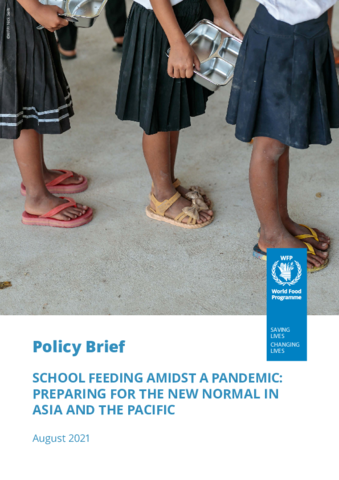
Prior to COVID-19, close to 129 million children in the
Asia and the Pacific region received school meals,
primarily through government-led, national school feeding
programmes. Due to COVID-19 school closures, many of these
children stopped receiving on-site school meals. Although
some countries introduced alternative solutions,
school-age children are expected to have been negatively
affected by this disruption. Against this backdrop, the
World Food Programme (WFP) Regional Bureau for Asia and
the Pacific (RBB) commissioned Oxford Policy Management to
undertake a review of adaptations to on-site SF in order
to inform policymaking and programming in the context of
the new reality. This research sought to answer the key
research question through an emphasis on gathering data
primarily from six countries in the region where WFP
supports SF programmes in different capacities:
Bangladesh, Cambodia, India, Nepal, Philippines and Sri
Lanka.



